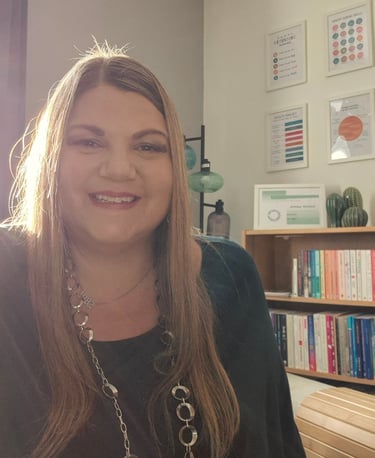Breaking the Stigma
Supporting People in Larger Bodies and Ending Weight Bias


Breaking the Stigma: Supporting People in Larger Bodies and Ending Weight Bias
Living in a larger body can come with unique challenges, not only around physical health but also in terms of stigma, discrimination, and lack of inclusive support. Sadly, weight bias is still common in healthcare, workplaces, and even in everyday social interactions. This can have a huge impact on mental health, self-esteem, and overall wellbeing.
In this blog, we’ll explore the realities of weight stigma, why inclusive spaces matter, and how we can all contribute to a more compassionate and supportive environment.
What is Weight Stigma?
Weight stigma refers to negative attitudes, stereotypes, or discrimination towards people in larger bodies. It often shows up in ways such as:
Assumptions about laziness, lack of willpower, or poor health habits
Judgement in healthcare settings, leading to missed or inadequate treatment
Limited access to comfortable and inclusive spaces, from seating to clothing shops
Hurtful comments or social exclusion
These experiences can leave people feeling unseen, unwelcome, or even ashamed—when in reality, body size tells us very little about a person’s worth, health, or identity.
The Impact on Mental Health
The effects of weight stigma go far beyond surface-level comments. Research shows that weight bias is linked to:
Higher levels of anxiety, depression, and stress
Disordered eating patterns and unhealthy coping mechanisms
Social isolation and reduced confidence
Avoidance of healthcare due to fear of judgement
When people feel unsupported or excluded, their emotional wellbeing suffers—creating barriers to both physical and mental health care.
Why Inclusive Spaces Matter
Everyone deserves to feel comfortable, respected, and welcomed—whatever their body size. Inclusive environments mean:
Healthcare without judgement – where patients are listened to with empathy rather than assumptions.
Accessible facilities – from seating and equipment to clothing and fitness spaces that cater to diverse body sizes.
Therapy and counselling that are weight-inclusive – offering safe spaces where body shame is not reinforced.
Inclusive spaces aren’t just about physical comfort—they send a powerful message that all bodies are worthy of dignity and respect.
Question Your Own Biases
We all absorb messages from society about weight. Reflect on the language you use and the assumptions you might make about body size.
Use Respectful Language
Avoid terms that carry judgement or stigma. Words like “overweight” or “obese” can feel medicalised or shaming. Many people prefer “larger body” or “plus-size”.
Amplify Voices of People in Larger Bodies
Listen to lived experiences and respect the knowledge of those who navigate these challenges every day.
Support Inclusive Services
Choose healthcare providers, fitness spaces, and counsellors who are openly weight-inclusive and non-judgemental.
Be an Ally
Challenge fatphobic comments or jokes when you hear them. Silence can reinforce stigma—compassionate allyship helps break the cycle.
Summary
Stigma towards people in larger bodies isn’t just hurtful—it actively harms mental health and creates barriers to support. By challenging weight bias, fostering inclusive environments, and showing compassion, we can make a real difference in helping everyone feel valued and respected.
If you’re struggling with the impact of weight stigma on your mental health, reaching out for support from a weight-inclusive therapist can be a powerful step. Therapy can offer a safe, compassionate space to process your experiences and rebuild a sense of self-worth that isn’t tied to body size.






